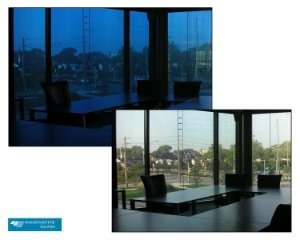Dec 16 2009
Hitachi Chemical Co., Ltd. (Head Office: Tokyo; President and CEO: Kazuyuki Tanaka; Paid-in Capital: 15.5 billion yen, hereinafter "Hitachi Chemical") introduced the SPD (Suspended Particle Device) light-control film technology from New York based Research Frontiers Inc. (NASDAQ:REFR), and commercialized a roll-coated, wide-width SPD film whose light transmittance can be freely controlled by simply adjusting AC voltage.

The film achieves this by utilizing its proprietary technologies including resin synthesis technology, film coating technology, and size control technology for adjusting the size of light-control particles based on nanotechnology. Hitachi Chemical began mass production of SPD film in July 2009 and is supplying commercially usable film to end-product licensees of Research Frontiers for the automotive, architectural, marine and aircraft markets. With its newly completed coating line dedicated to production of SPD film, Hitachi Chemical has expanded its production capacity of SPD film to 400,000m2/year.
In recent years, the market for light-control glass has expanded due to the increasing demands for energy efficiency and heat and light control, automated shading, privacy, and design and engineering innovation. SPD film is laminated between panes of glass or plastic to produce various dynamic light-control products including windows, doors, skylights, atria and sunroofs. As a durable laminate, it is available in many sizes, fabrications and shapes, and can be used on curved surfaces. Other light-control technologies include liquid crystal and electrochromic devices. However, with liquid crystal technology, it is difficult to tune the level between white and transparent, and typically little shading benefit is offered. Electrochromic devices have problems of relatively slow and inconsistent response speed, difficulty in achieving larger sizes, and limitations to the substrates that it can be used with, and restrictions on the number of available light-control states. For these reasons and others, there is growing demand for "smart" products that can be made in a large size and can enable freedom in quickly controlling light transmittance.
Therefore, Hitachi Chemical has developed the volume production method for SPD film based on its own unique polymer synthesis technologies and resin technologies, which adjusts the size of light-control particles base on nanotechnologies. It has succeeded in commercializing its SPD film to the world market. The SPD film consists of two polyethylene terephthalate (PET) films coated with a transparent conductive layer, and matrix resin dispersed with microcapsules containing orientative particles sandwiched between two films. The principle of light control is that when alternate voltage is applied to the orientative particles, they become oriented and transparent. When the AC voltage is not applied, the particles are not oriented so that their color is dark blue, thus shielding light. The color tone can be changed from dark blue to transparent to freely control the light transmittance. Its power consumption is as low as 1.1 W/m2.
A wide range of applications of SPD film are expected, including the application to buildings such as Indiana University in the USA, and windows of boats and aircrafts, which have been already realized. Future potential applications include automotives, home electric appliances, and partitions.)
Hitachi Chemical will strive to accelerate the use of SPD film, which holds significant potential for growth. SPD film is positioned as one of the key emerging products promoted by Hitachi Chemical